Why is air quality worse at night and early morning?
Keypoints:
- Air quality is influenced by pollution sources, weather conditions (wind and rain), and atmospheric conditions.
- The Troposphere is the lowest layer of the atmosphere, within which the Planetary Boundary Layer (0-1.5 km above sea level) affects daily air quality.
- During the day, the Planetary Boundary Layer is larger, diluting pollution. At night, it becomes shallow, causing pollutants to concentrate.
- Due to Jakarta’s geography, pollution levels are higher at night. Regular air quality checks are recommended before spending extended time outdoors.
You’ve probably looked at the nafas app at 11PM at night or at 6AM and wondered to yourself, what is going on?
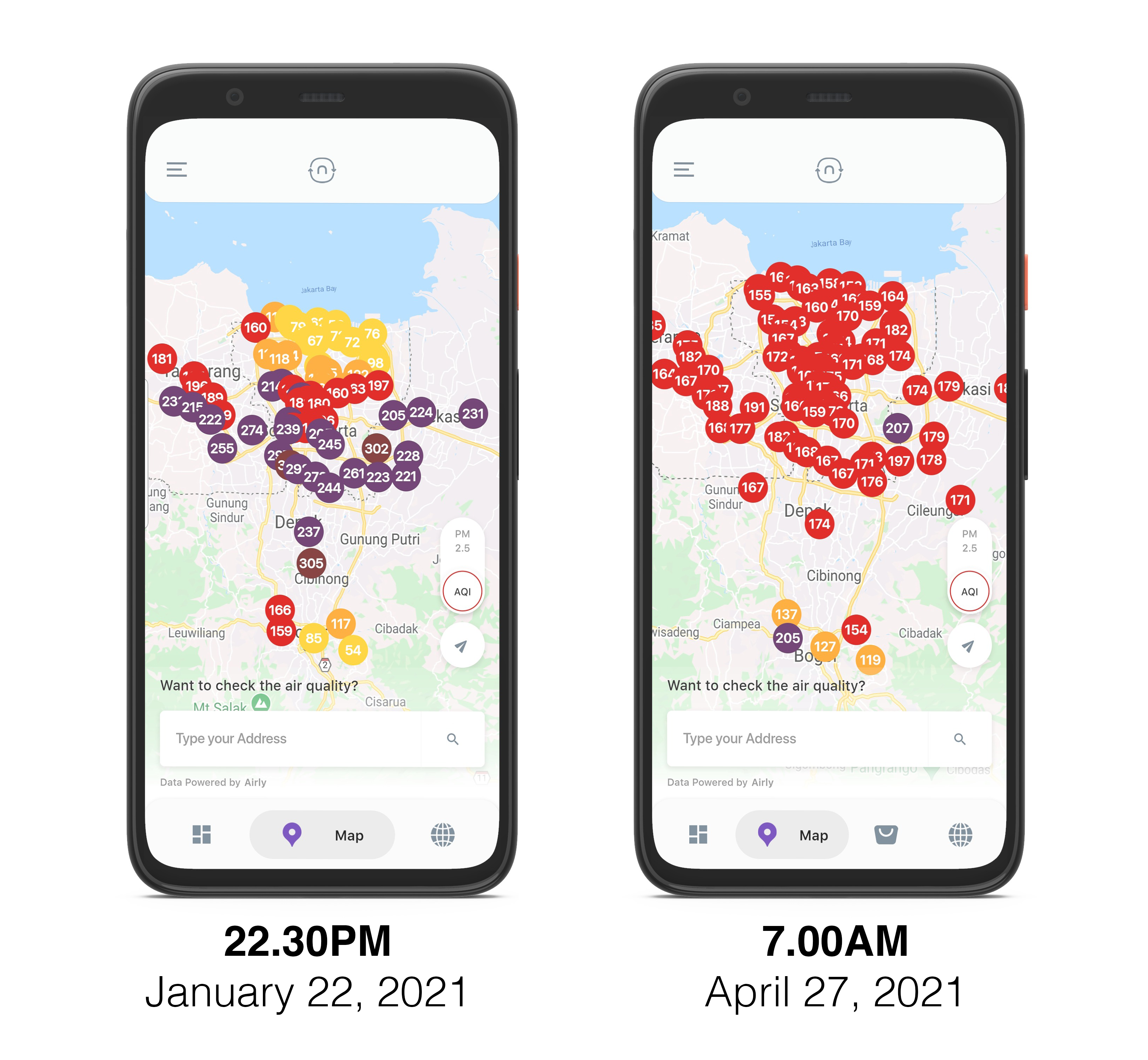
One of the key insights in the most recent weekly report, was that the air quality was the worst in the middle of the night and in the early morning.
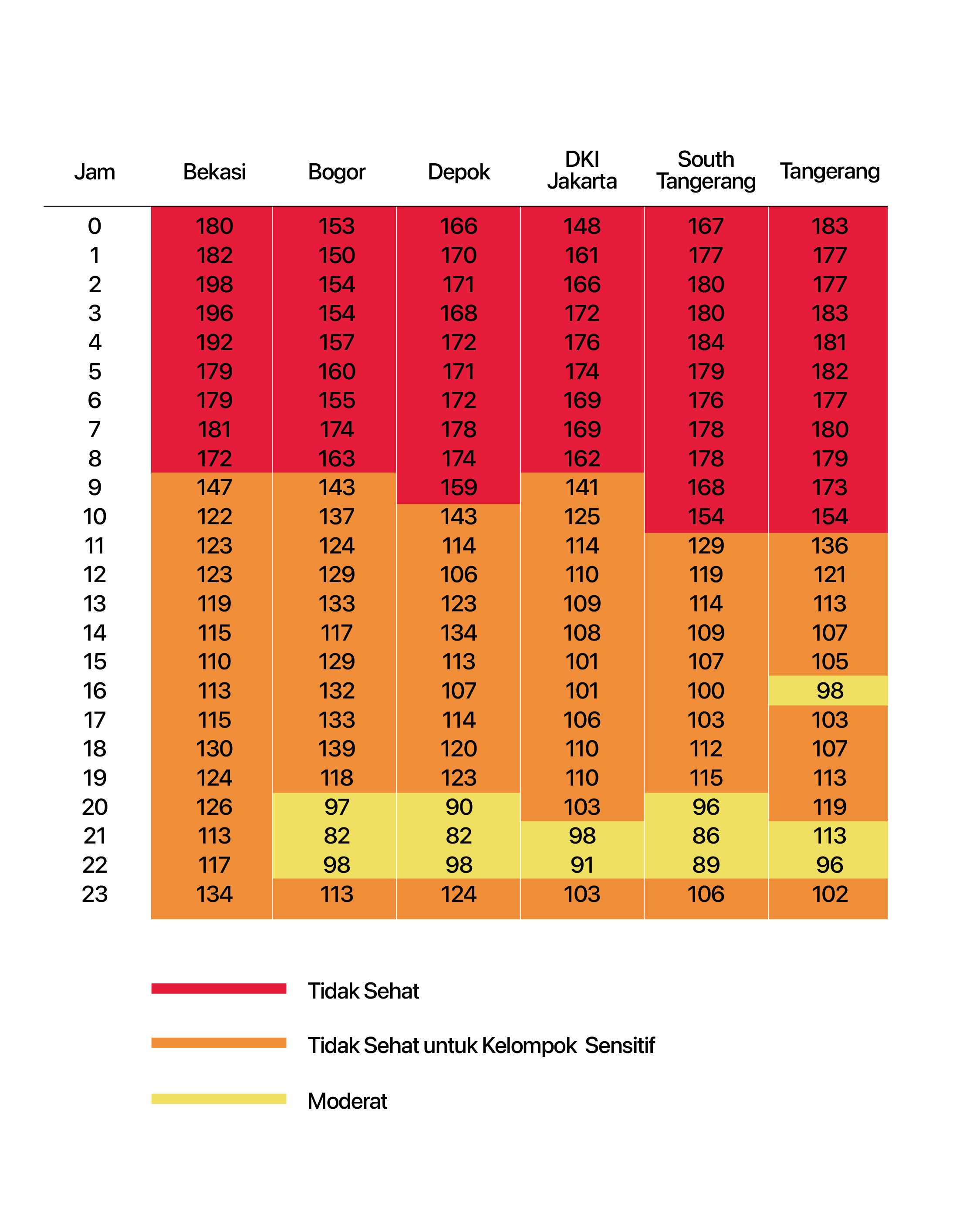
There are many things that impact air quality, including the types of sources that produce air pollution, and the current weather conditions, particularly wind and rain.
There is, however, one more important element that affects our air quality, which is our atmosphere.
A Little Atmospheric Science
The earth’s atmosphere is divided into various layers, and the one closest to us is called the Troposphere. The Troposphere extends to about 12km above sea level, around as high as our planes fly.
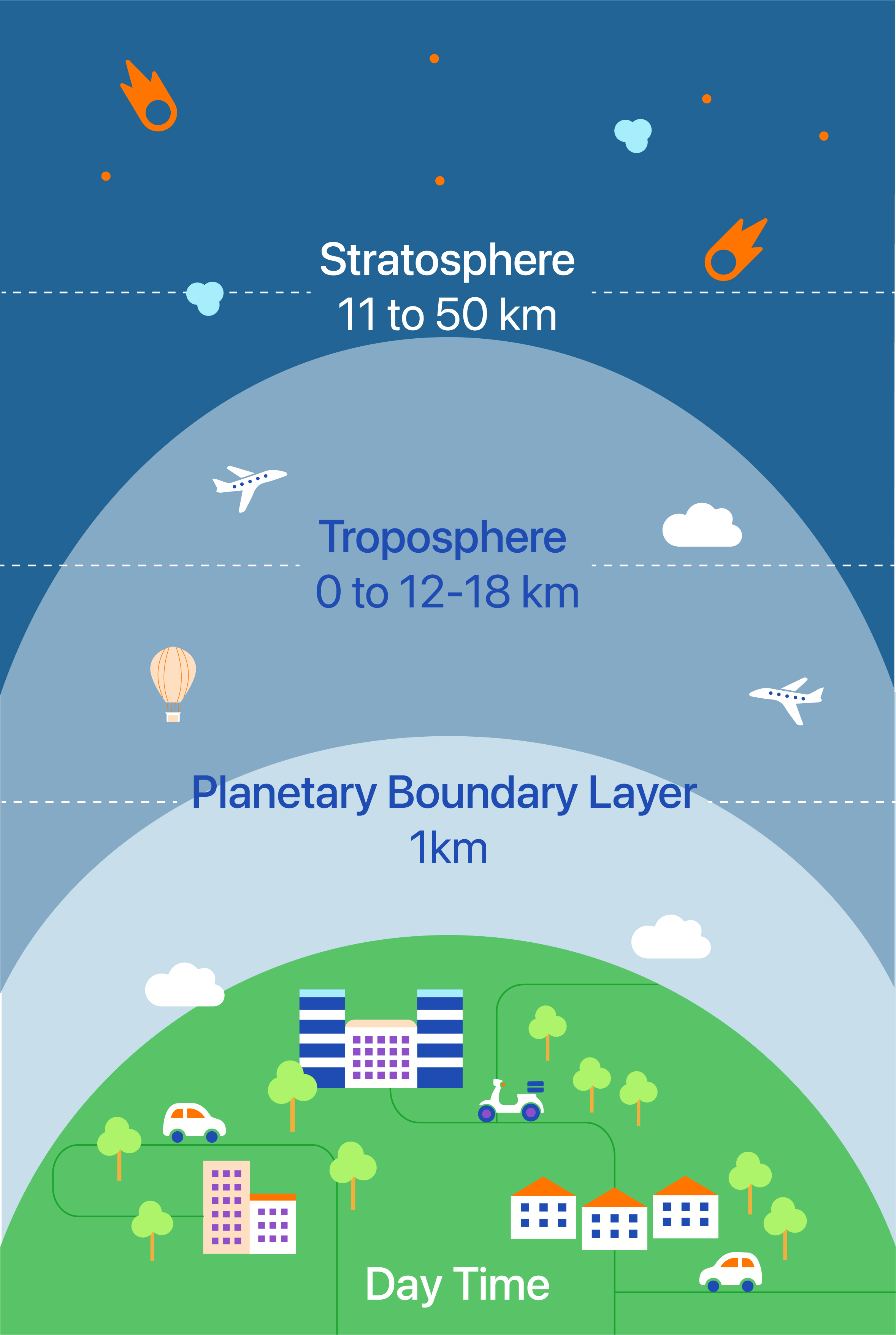
Within the Troposphere, there is something called the Planetary Boundary Layer, a section of the atmosphere from 0 to about 1.5 km above sea level where temperature, humidity and wind directly impact our daily lives.
The Planetary Boundary Layer changes in size throughout the day based on factors such as time, location and weather conditions. This means that it can expand (up to 3km) and contract (down to 100m).
Why This Matters For Air Pollution?
When air pollution particles are created they stay suspended in the air, moving with wind direction.
During the day, the Planetary Boundary Layer is large and there is more space for these pollution particles to move around, causing the concentrations to get diluted. This is why during the day, when there are a lot of cars out at rush hour air pollution levels might be lower.
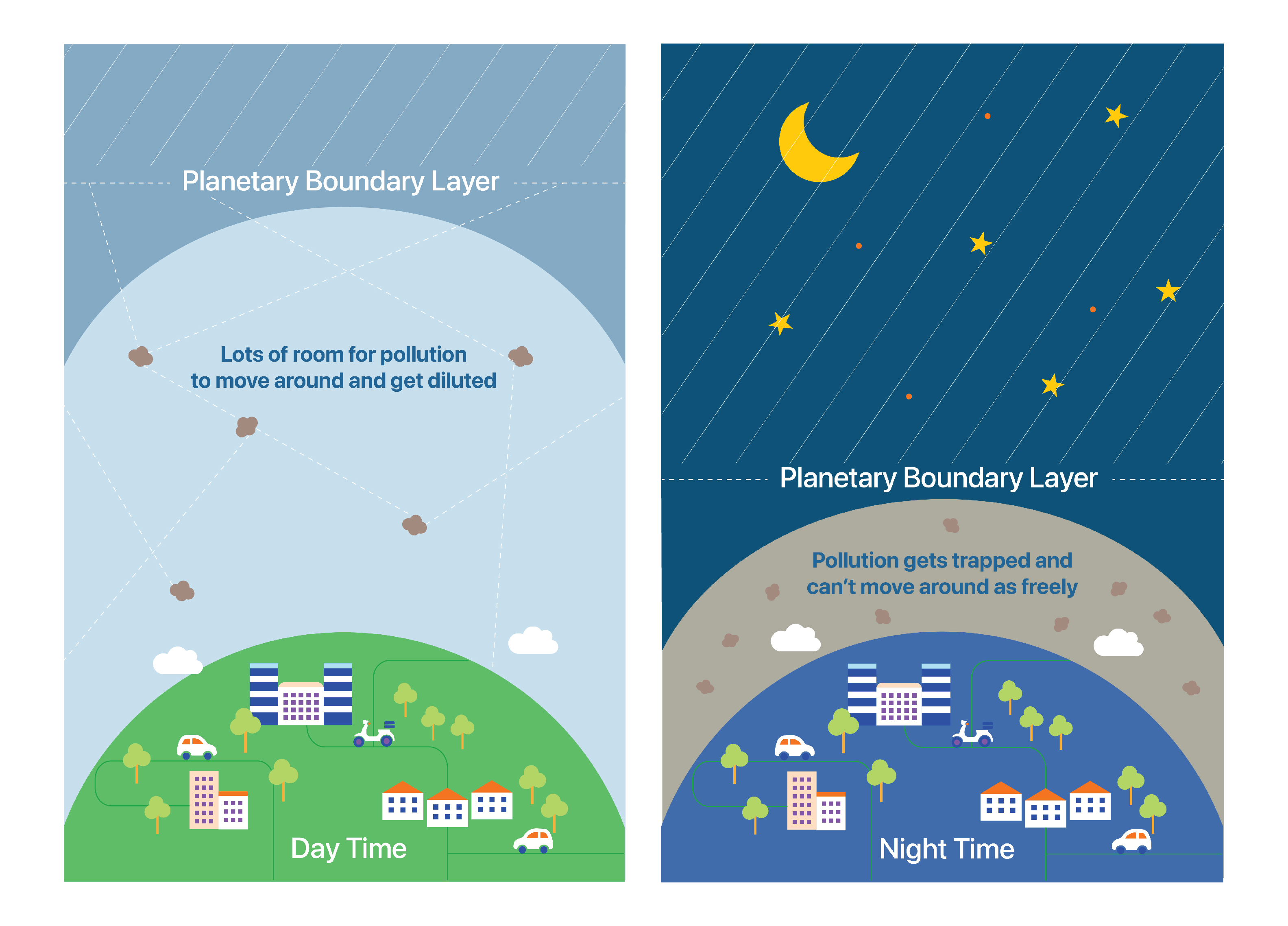
During the night Planetary Boundary Layer becomes shallow and there is less space for these pollution particles to move around, causing them to get concentrated. Due to Jakarta’s geographic location, this tends to happen at night, which is why the air pollution levels can be higher in the middle of the night.
Looking at air quality data collected in August 2020, November 2020, January 2021 and April 2021 it is clearly visible that in Jabodetabek the trends for air quality are similar - on average worse in the evening and early morning than throughout the day.
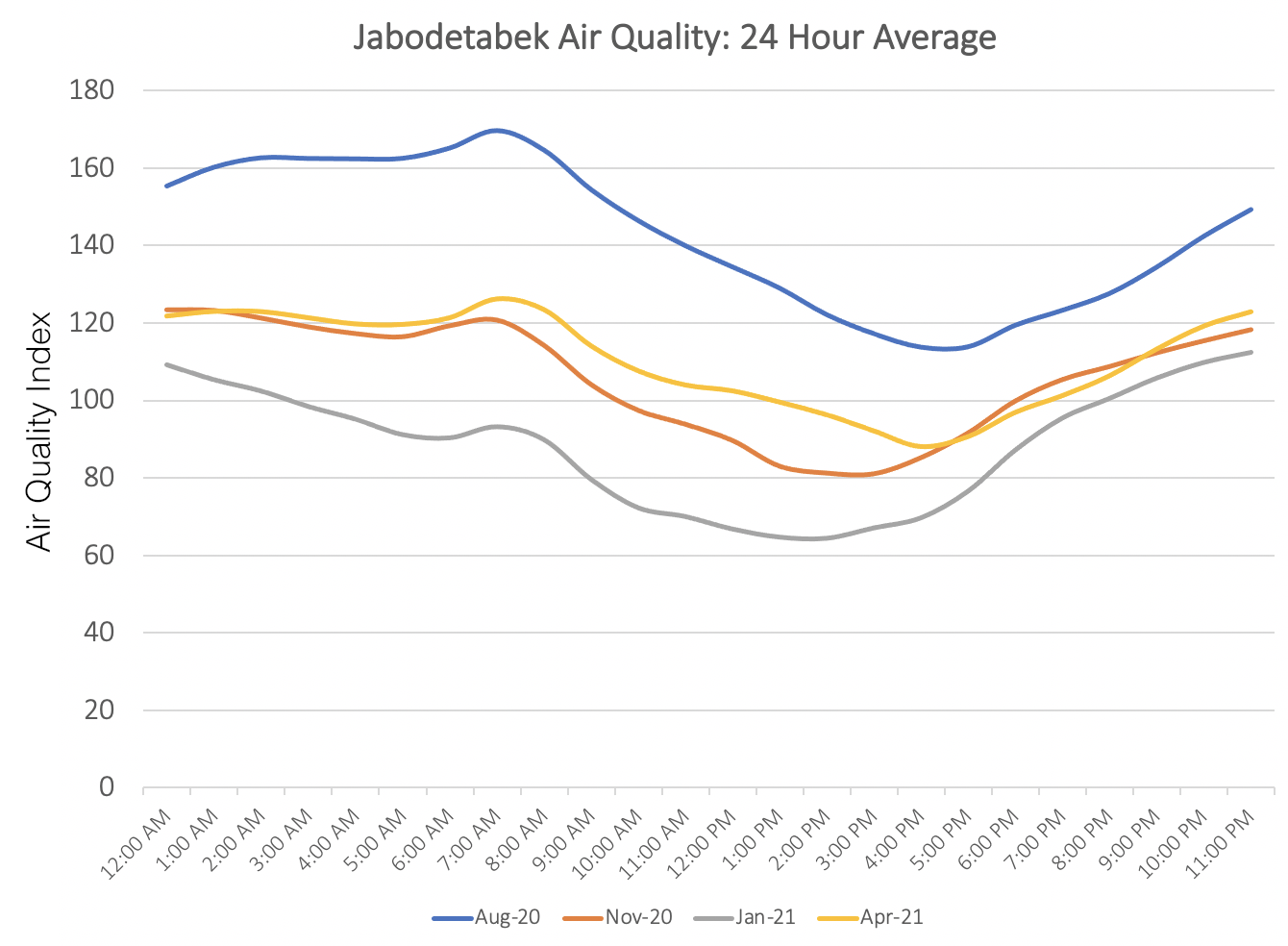
There are many factors out of our control that impact how much pollution is in our air. In Jakarta, this is highly variable, which is why we always recommend to check your air quality before going outdoors for extended periods of time.
To keep better informed about the air quality in your area, don’t forget to:
- Follow any location by pressing “❤️”
- Open any sensor and click on “Set Air Quality Alerts” to receive information about when air quality levels go above a certain amount
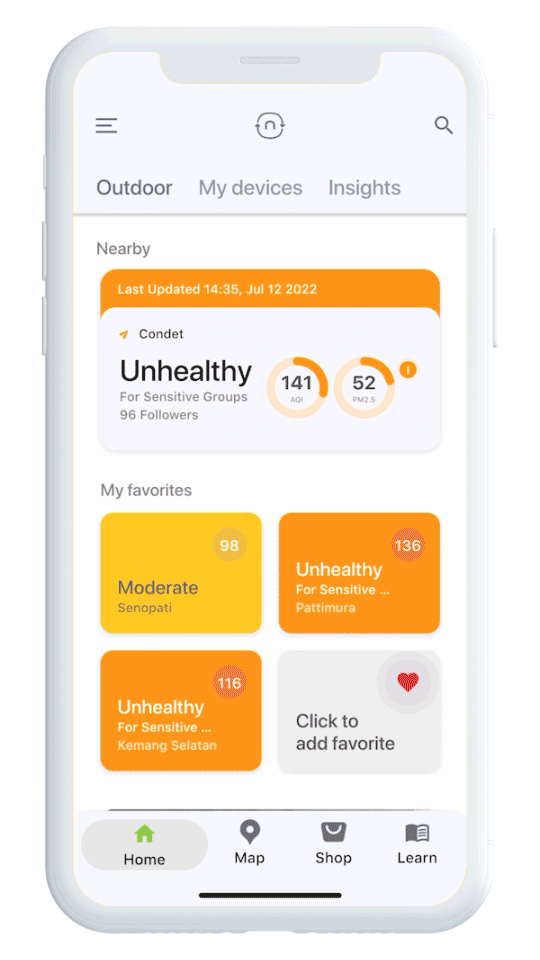
✅ If you liked this article, please share it with your friends and family by pressing the "Share" icon below.